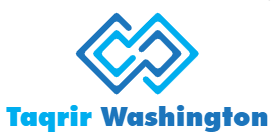
تستخدم المادة الخارقة الجديدة النموذجية ذات الخصائص غير التقليدية إشارات كهربائية للتحكم في اتجاه وشدة موجات الطاقة التي تمر عبر مادة صلبة. تمثل هذه المادة الخارقة الجديدة ، التي تتميز بكثافة كتلة فردية ، خروجًا عن قانون نيوتن الثاني حيث لا تتحرك القوة والتسارع في نفس الاتجاه. يتصور هوانغ مجموعة واسعة من التطبيقات ، من التطبيقات العسكرية والتجارية إلى التطبيقات المدنية مثل التحكم في موجات الرادار أو إدارة الاهتزازات من الاضطرابات الجوية في الطائرات ، ومراقبة صحة الهياكل مثل الجسور وخطوط الأنابيب.
صمم باحثو جامعة ميسوري نموذجًا أوليًا لمادة خارقة نشطة صغيرة وخفيفة الوزن يمكنها التحكم في اتجاه موجات الطاقة وشدتها.
طور البروفيسور جوليانج هوانج من جامعة ميسوري نموذجًا أوليًا لمادة خارقة يمكنها التحكم في اتجاه موجات الطاقة وشدتها باستخدام الإشارات الكهربائية. المواد المبتكرة لها تطبيقات محتملة في القطاعين العسكري والتجاري ، ويمكن استخدامها أيضًا لمراقبة الصحة الهيكلية للجسور وخطوط الأنابيب.
لأكثر من 10 سنوات ، كان جوليانغ هوانغ ، كرسي Huber and Helen Craft في الهندسة بجامعة ميسوري ، يبحث في “الخصائص غير العادية لـ[{” attribute=””>metamaterials” — an artificial material that exhibits properties not commonly found in nature as defined by Newton’s laws of motion — in his long-term pursuit of designing an ideal metamaterial.
Huang’s goal is to help control the “elastic” energy waves traveling through larger structures — such as an aircraft — without light and small “metastructures.”

The prototype metamaterial uses electrical signals transported by these black wires to control both the direction and intensity of energy waves passing through a solid material. Credit: University of Missouri
“For many years I’ve been working on the challenge of how to use mathematical mechanics to solve engineering problems,” Huang said. “Conventional methods have many limitations, including size and weight. So, I’ve been exploring how we can find an alternative solution using a lightweight material that’s small but can still control the low-frequency vibration coming from a larger structure, like an aircraft.”

Guoliang Huang. Credit: University of Missouri
Now, Huang’s one step closer to his goal. In a new study published in the Proceedings of the National Academy of Sciences (PNAS) on May 18, Huang and colleagues have developed a prototype metamaterial that uses electrical signals to control both the direction and intensity of energy waves passing through a solid material.
Potential applications of his innovative design include military and commercial uses, such as controlling radar waves by directing them to scan a specific area for objects or managing vibration created by air turbulence from an aircraft in flight.
“This metamaterial has odd mass density,” Huang said. “So, the force and acceleration are not going in the same direction, thereby providing us with an unconventional way to customize the design of an object’s structural dynamics, or properties to challenge Newton’s second law.”
This is the first physical realization of odd mass density, Huang said.
“For instance, this metamaterial could be beneficial to monitor the health of civil structures such as bridges and pipelines as active transducers by helping identify any potential damage that might be hard to see with the human eye.”
Reference: “Active metamaterials for realizing odd mass density” by Qian Wu, Xianchen Xu, Honghua Qian, Shaoyun Wang, Rui Zhu, Zheng Yan, Hongbin Ma, Yangyang Chen and Guoliang Huang, 18 May 2023, Proceedings of the National Academy of Sciences.
DOI: 10.1073/pnas.2209829120
Other MU contributors include Qian Wu, Xianchen Xu, Honghua Qian, Shaoyun Wang, Zheng Yan and Hongbin Ma. Grants from the Air Force Office of Scientific Research and the Army Research Office funded the research.

“متعصب للموسيقى. مستكشف متواضع جدا. محلل. متعصب للسفر. مدرس تلفزيوني متطرف. لاعب.”
